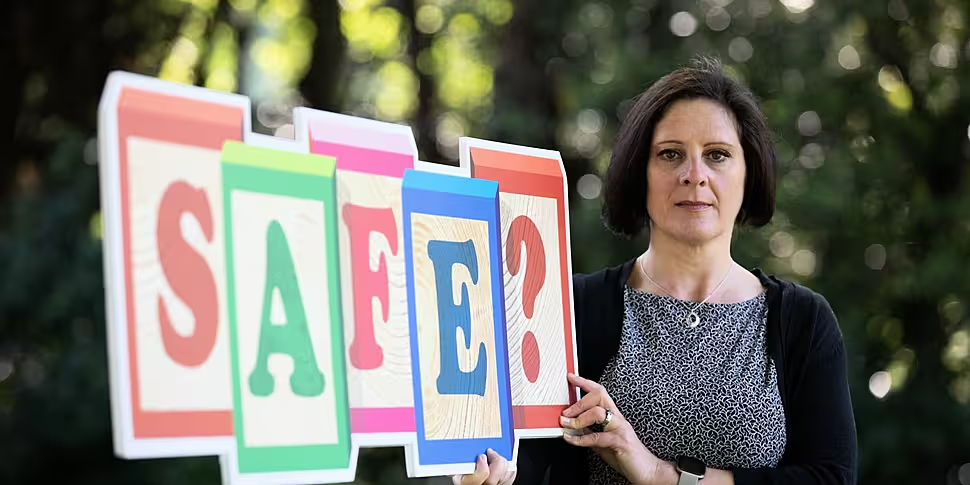A survivor of domestic abuse says victims are often 'raked over coals in court' due to failings in the family law system.
Mary-Louise Lynch, who founded survivors group Sisi, was speaking after Women's Aid announced a 43% increase in contacts last year.
During 2020, there were 29,717 contacts with the charity.
This included 26,400 responses by its helpline team - which featured 1,460 support conversations on Instant Messaging and replies to 830 e-mails.
During the contacts, women made 30,841 disclosures of abuse - including 24,893 disclosures of emotional, physical, economic and sexual abuse against themselves and 5,948 against their children.
Women's Aid CEO Sarah Benson says some women were beaten while pregnant "and in some cases, women had tragically lost their baby because of the abuse that they had been subjected to".
The charity's annual report criticises the family law system and how it operates.
It states: "Both our on the ground experience and national research show that the family law system fails many women and children who are separating from a domestic abuser.
"The process is prolonged, costly and dis-empowering.
"It often results in unsafe custody and access arrangements which disregard the impact of domestic abuse including coercive control on children and overlook the risk of their direct abuse and/or exposure to domestic
violence.
"The safety of the mother is rarely, if ever, considered in custody and access hearings".
Women have repeatedly told the charity that a "pro-contact culture" prioritises the right of access of the abuser, over the safety and welfare of the child and mother.
And that the history of domestic abuse is not identified, or when identified it is "minimised and dismissed" - leaving women unable to protect their children and themselves.
The report also says women's fears about the physical safety and the psychological well-being of their children "are often not heard."
Ms Lynch feels the State is forcing them to repeatedly face their abusers.
"We are told if the court process is draining our finances [to] go out and get a job.
"How is a survivor expected to do an ordinary job and go to court every few weeks or months, and cope with PTSD that is triggered every time a perpetrator sets a new court date?
"One woman in Sisi said 'The only time I ever see him is in court, he has no other way to get to me'.
"We are told that we are stuck in toxic relationships; we are not in the relationships anymore, but we are stuck there because the State won't let us leave.
"We are the women who might once have been put to work in laundries, these days we are raked over coals in court."
Ms Lynch also outlines some of the family law system reforms survivors would like to see.
"We went effective case management implemented, where families before the courts have opportunity to present evidence in a supported manner.
"We want specialist domestic violence Garda liaisons available for all family law hearings, in order to verify a survivor's contact journey."
While there is no data in Ireland on the prevalence of domestic abuse in family law cases, Women's Aid says evidence from other countries suggests a high prevalence of domestic abuse in such cases.
A recent UK study found allegations or findings of domestic abuse in samples of child arrangements/contact cases range from 49% to 62% - indicating a much higher prevalence of domestic abuse than in the general population.
While an Australian report states that the majority of parents using the courts to resolve parenting arrangements experienced emotional and/or physical violence - with 46% reporting safety concerns for themselves or their children as a result of ongoing contact with the other parent.
Anyone affected by issues raised in this article can contact Women's Aid 24hr National Freephone Helpline on 1800-341-900
Additional reporting: Kacey O'Riordan









